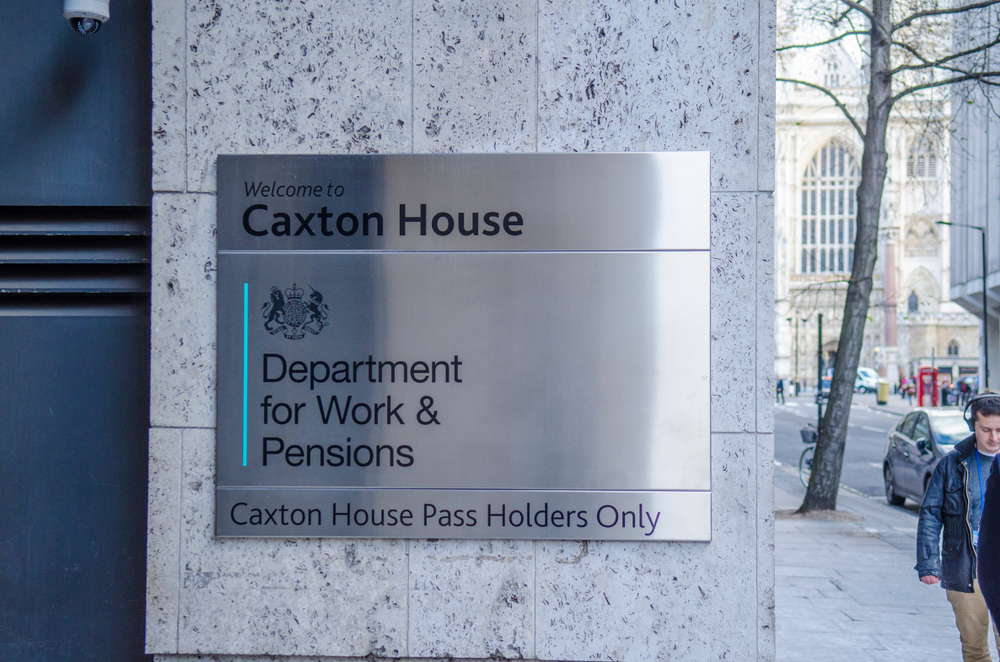The government is pushing ahead with requirements for pension trustees to calculate and disclose a portfolio alignment metric on the extent to which their investments are aligned with the Paris Agreement.
The plans, which will come into force from 1 October 2022, will require trustees to obtain and use data to calculate their selected portfolio alignment metric “as far as they are able”, and aim to ensure that more than 80 per cent of UK members will be invested in schemes that are helping to limit climate risk.
Following its consultation, the Department for Work and Pensions (DWP) has confirmed that it does not intend to make any change on the scope and timing of the measures, despite some industry concerns, particularly around data.
Indeed, the DWP's consultation response emphasised the need for the industry to recognise the “now well-documented urgency of the threat climate change presents”, explaining that by including schemes between the £1bn and £5bn bracket, it is capturing around an additional 30 per cent of assets under management "without delay".
In light of this timeline, the DWP also published its statutory guidance alongside the consultation response, acknowledging that clear, coherent and timely guidance will be a key resource for trustees.
However, it argued that it was not necessary to delay the introduction of the requirements, as all trustees in scope of the regulations should have the necessary governance capacity and expertise to calculate at least a binary portfolio alignment metric.
Furthermore, whilst DWP acknowledged that it is “not an entirely optimal outcome” for trustees to be required to report against alignment metrics before asset managers in scope of the Financial Conduct Authority's TCFD regime are required to report them, it does not believe this is a strong enough reason for delay.
In addition to this, although the DWP acknowledged that the accessibility, coverage, and quality of the data is a key challenge for trustees, it argued that the ‘as far as they are able’ principle helps address data availability concerns in relation to certain assets when calculating a portfolio alignment metric.
The DWP also suggested that there has already been "rapid advancement in data availability", predicting further improvements in transparency through the planned implementation of the UK Sustainability Disclosure Requirements.
Additionally, whilst the DWP acknowledged industry concerns around methodological challenges when calculating and reporting portfolio alignment metrics, it stated that these concerns were not strong enough to delay the implementation of portfolio alignment metrics or prescribe one portfolio alignment metric over others.
"Indeed, in the face of methodological challenges, we think it is necessary to provide trustees with flexibility to select the type of portfolio alignment metric which best reflects their circumstances," the response stated.
"As a number of respondents highlighted, allowing trustees the flexibility to select a portfolio alignment tool of their choice, will give industry the space to consider the suitability of tools and drive standardisation."
Responding to concerns that this flexibility could leave some trustees vulnerable to being upsold less credible portfolio alignment tools whilst waiting for market standardisation, the DWP also suggested that trustees of the smaller schemes in scope who do not feel confident they will have the necessary expertise or resource should consider consolidating their members into a scheme which does.
Commenting in the foreword, Secretary of State for Work and Pensions, Thérèse Coffey, and Pensions Minister, Guy Opperman, stated: "We welcome the broad support our proposals have received and the almost unanimous agreement across industry that Paris alignment reporting and robust stewardship practices are key tools for effective action in addressing climate risks.
"We know it is not enough for schemes to simply tick-box their way to net zero. Effective stewardship, informed at least in part by portfolio alignment assessments, will help trustees drive real-world decarbonisation outcomes whilst delivering long-term value to savers.
"Although present data coverage may not be perfect, it is improving rapidly, and our requirements will help to accelerate this process significantly.
"Together with our existing TCFD regulations, these measures will see UK occupational pension schemes continue to be at the forefront of tackling climate risk.
"They will ensure that, from October this year more than 80 per cent of UK members will be invested in pension schemes which are helping to limit the climate risk to their members retirement incomes."
The Pensions Regulator has also welcomed the new requirements, with executive director of regulatory policy, analysis and advice, David Fairs, adding: “Climate change poses a potential risk to the pension pots of all savers.
"These requirements should see the trustees of more schemes recognising those risks and explain their progress in addressing them to savers.”
Latest News
-
OBR analysis reveals potential impact of salary sacrifice changes
-
Strong funding levels continue as endgame landscape reshaped by innovation
-
Harwich Haven Authority Pension Fund finalises £45m buy-in with Royal London
-
GAD publishes LGPS gender pension gap reporting guidance
-
DB scheme funding levels continue to improve heading into 2026
-
News in brief - 6 February 2026
Private markets – a growing presence within UK DC
Laura Blows discusses the role of private market investment within DC schemes with Aviva Director of Investments, Maiyuresh Rajah
The DB pension landscape
Pensions Age speaks to BlackRock managing director and head of its DB relationship management team, Andrew Reid, about the DB pensions landscape
Podcast: From pension pot to flexible income for life

Podcast: Who matters most in pensions?

In the latest Pensions Age podcast, Francesca Fabrizi speaks to Capita Pension Solutions global practice leader & chief revenue officer, Stuart Heatley, about who matters most in pensions and how to best meet their needs
© 2019 Perspective Publishing Privacy & Cookies










Recent Stories